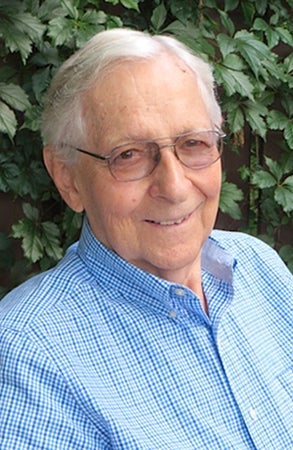Janusz (John) A. Brzozowski, a pioneer of Canadian computing and a Professor of Computer Science at the University Waterloo for more than five decades, passed away peacefully on Thursday, October 24, 2019 at Lisaard House after a long battle with cancer. He was 84.

John graduated from St. Michael’s College School in Toronto in 1953. He received a bachelor’s (1957) and master’s degree (1959) in electrical engineering from the University of Toronto. He completed a PhD at Princeton University in 1962.
Before his faculty position at the University of Waterloo in 1967, he taught at the University of Ottawa and the University of California, Berkeley. Over the course of his career, John supervised 15 PhD students and 28 master’s thesis and project students.
Even after his retirement in 1996, John continued supervising students and publishing papers, including recent contributions that had received best paper awards — the CIAA 2018 Sheng Yu Award for Best Paper for “State Complexity of Overlap Assembly” and the CIAA 2017 Sheng Yu Award for Best Paper for “Complexity of Prefix-Convex Regular Languages.”
John was one of the earliest researchers in theoretical computer science in Canada. He made fundamental contributions to many areas of computer science, including digital circuits, algebra, and the theory of automata. He published almost 200 papers in the scholarly literature, and co-authored two books — Digital Networks with Michael Yoeli in 1978 and Asynchronous Circuits with Carl Seger in 1995.
John was a significant figure who helped to establish computer science at the University of Waterloo. He was chair of the Department of Computer Science for seven years — from 1978 to 1983 and again from 1987 to 1989 — and during that time he contributed substantially to its current size and international stature. He was also a leader in the development of computer science in Canada and around the world, through the Canadian Computer Science Chairs Committee and the Computing Research Association.
In June 2015, a conference was held at the University of Waterloo in honour of John’s 80th birthday. The event, known as Brzozowski 80, was attended by dozens of his colleagues and former students, who delighted in singing happy birthday to him in Polish. A volume was published in 2017, with contributions from that conference entitled The Role of Theory in Computer Science: Essays Dedicated to Janusz Brzozowski, by World Scientific.

Attendees at “Brzozowski 80: The Role of Theory in Computer Science,” held on June 24, 2015. Distinguished Professor Emeritus John Brzozowski, with his hands crossed, is near the centre in the photo (full-resolution photo).
John received a number of awards for his work, including IBM Canada’s Canadian Pioneer in Computing in 2005 and the Lifetime Achievement Award from CS-Can/Info-Can in 2016. In Pioneers of Computing, John had offered these words of wisdom to students and colleagues, reflections that are as relevant today as they were in 2005:
“To researchers in general — work on a problem that fascinates you, and not on one that will just bring you a higher salary or a larger grant. Do not avoid difficult problems; to solve a hard problem you need to become obsessed by it!”
“Avoid categorizing research work as ‘theory,’ vs. ‘application,’ or ‘implementation.’ Any serious look at any unsolved problem will benefit from a sound theoretical analysis, and a good theoretical result will be usually followed by interesting applications.”
John was known for his mathematical precision, his sense of humour, and his command of many languages. He travelled widely and gave talks at dozens of international conferences, where he often introduced his remarks in the language of the host country. In addition to his many professional accomplishments, John loved music, guitar, and composed songs for the Polish scouts in Ontario. He loved biking, tennis and squash, cryptic crossword puzzles, exploring the world, and most of all, his family.
John is survived by his wife of 60 years, Maria, children Michael (Janet) and Teresa (Josef) and grand-children Sophie, Olivia and Max, and step-grand-children Kate (Bob) and John. We offer our deepest condolences to John’s wife Maria and his family.